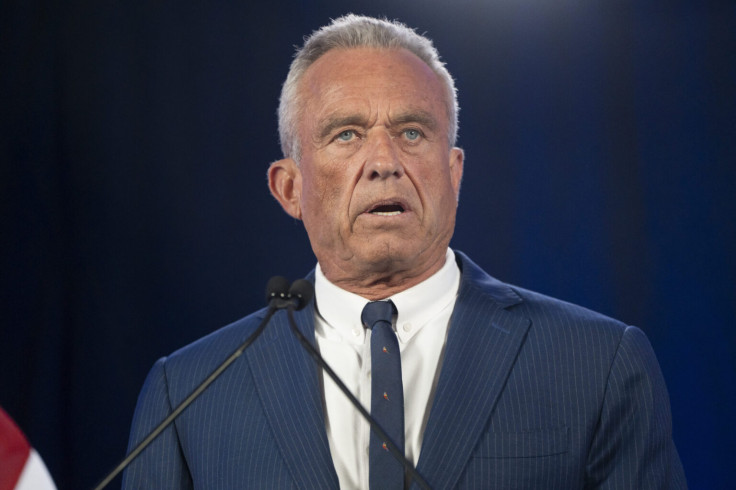RFK Jr Wants Every American Wearing a Smartwatch To Track Their Health by 2029 — But Will The Data Be Safe?
Dr Casey Means also champions CGM wearables, highlighting their potential for metabolic health

US Health and Human Services Secretary Robert F Kennedy Jr has put forward a vision for 2029 when he hopes every American will be using a smartwatch to monitor their health.
This is part of his 'MAHA' agenda, wherein all Americans utilise 'wearable' technology to monitor their health. However, this ambitious proposal raises a critical question about the security of personal data of those using it.
A Push for Wearable Health
On Tuesday, the head of the Kennedy clan outlined his agency's extensive plan to encourage Americans – 40% of whom are obese – to adopt data collecting wearable technology like FitBits, Oura Rings, and Apple Watches, aiming to foster healthier lifestyles.
During a Tuesday hearing with the House Committee on Energy and Commerce, Kennedy stated, 'We're about to launch the biggest advertising campaign in HHS history to encourage Americans to use wearables.'
In the statement, also posted to X, the secretary explained, 'It's a way people can take control over their own health. They can take responsibility. They can see, as you know, what food is doing to their glucose levels, their heart rates, and a number of other metrics, as they eat it.'
Wearables put the power of health back in the hands of the American people.
— Secretary Kennedy (@SecKennedy) June 24, 2025
We’re launching one of the largest HHS campaigns in history to encourage their use—so every American can take control of their health, one data point at a time.
It’s a key part of our mission to Make… pic.twitter.com/H2ZY9NiTfN
'We think that wearables are a key to the MAHA agenda of making America healthy again and my vision is that every American is wearing a wearable in four years,' he added.
Another Voice: Dr Casey Means and CGM
Kennedy believes that with precise and current health information, Americans will make better dietary choices and even opt for more physical activity.
The Trump administration official had previously contended during his Senate confirmation hearing that the nation's obesity rate poses a risk to national security, impacting military readiness.
Dr Casey Means, President Trump's nominee for Surgeon General, also advocates for wearable Continuous Glucose Monitor (CGM) products.
In a blog post for Levels, her own company that produces CGMs, Means contended that these 'small plastic discs' have the potential to 'reduce global metabolic suffering' and offer crucial support to the '93.2 percent of people' in the US struggling with metabolic issues.
'Wearing a CGM as part of a journey to understand and optimise health provides seven main benefits,' she noted. Means's Levels technology, once attached to a user's arm, transmits accurate, second-by-second metabolic data straight to their smartphone.
MAHA's Reach: Changes at Starbucks
Last week, Kennedy announced that coffee giant Starbucks would implement MAHA-inspired changes to its menu, despite the company already avoiding artificial flavours, dyes, high-fructose corn syrup, and other unhealthy additives.
RFK Jr implemented a notable change for Americans earlier this year by banning artificial dyes from food products.
The Road Ahead: Health, Tech, and Privacy
The debate surrounding RFK Jr.'s vision for widespread smartwatch adoption by 2029 highlights a crucial intersection of health innovation and data privacy. While the potential for empowering individuals with real-time health insights is significant, the security of such sensitive information remains a paramount concern.
As wearable technology becomes increasingly integrated into our lives, robustly protecting personal health data will be essential.
The success of initiatives like the MAHA agenda hinges on encouraging adoption and building public trust through transparent and secure data management. This balance will ultimately determine whether this ambitious health-tracking future benefits every American.
© Copyright IBTimes 2025. All rights reserved.






















